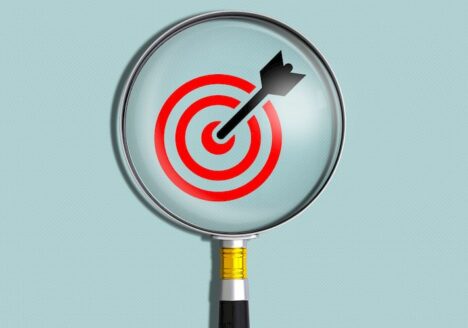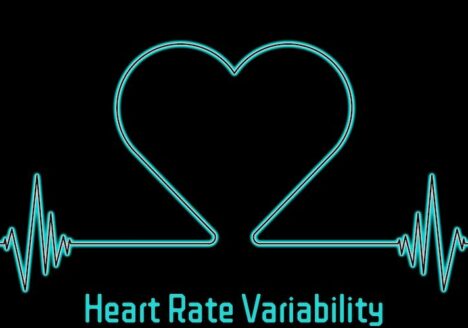In the pursuit of excellence across various domains of life—physical, mental, emotional, spiritual, professional, and interpersonal—managing digital device usage has become crucial. Digital curfews and reducing blue light exposure are essential strategies within the Excellence Nexus framework for optimizing peak performance. This article delves into how implementing digital curfews can enhance your ability to achieve peak performance across all dimensions of the Excellence Nexus, with insights grounded in scientific research.
Application in Excellence Nexus
- Physical Peak
Achieving physical excellence requires not just rigorous exercise and nutrition but also high-quality sleep. Digital curfews play a vital role in promoting better sleep by reducing evening exposure to blue light, which can interfere with melatonin production and disrupt sleep cycles (Chang et al., 2015). By ensuring consistent and restful sleep, you can enhance muscle recovery, immune function, and overall physical vitality, all of which are necessary for reaching and maintaining your physical peak (Figueiro et al., 2011). - Mental Peak
Cognitive clarity and sharpness are critical for achieving a mental peak, whether in academic, professional, or creative endeavors. Digital curfews help protect cognitive function by preventing the sleep disruption caused by blue light exposure and the mental overstimulation that comes from prolonged screen time. Research shows that individuals who limit screen use before bed experience improved memory, focus, and cognitive performance, all of which are essential for sustained mental excellence (Exelmans & Van den Bulck, 2016). - Emotional Peak
Emotional resilience and balance are key components of emotional excellence. Continuous use of digital devices, especially late at night, is linked to increased stress levels and disrupted sleep, both of which can undermine emotional stability (Thomée et al., 2011). By establishing a digital curfew, you can reduce exposure to stress-inducing content and allow your mind to relax, fostering emotional equilibrium and resilience. - Spiritual Peak
Reaching a spiritual peak involves deepening your connection with yourself and your values. Digital curfews create space for reflective practices such as meditation, journaling, or quiet contemplation, which are essential for spiritual growth. Disconnecting from digital distractions in the evening allows you to cultivate mindfulness and a deeper sense of inner peace, contributing to spiritual excellence. - Prosperity Peak
Professional success and financial well-being are closely tied to your physical and mental states. A well-implemented digital curfew can lead to better sleep, reduced stress, and increased productivity, all of which are critical for achieving prosperity. By avoiding late-night work emails and social media, you can ensure that your work-life balance remains intact, leading to sustained professional excellence (Thomée et al., 2011). - Impact Peak
Maximizing your positive impact on others requires peak physical, mental, and emotional health. Digital curfews help maintain these aspects by ensuring you are well-rested and emotionally balanced, enabling you to lead effectively and inspire those around you. By managing your digital habits, you can be fully present in your interactions, enhancing your ability to make a meaningful impact.
Benefits within Excellence Nexus:
- Enhanced physical recovery and vitality through improved sleep quality
- Sharper cognitive function and focus, supporting sustained mental excellence
- Balanced emotional state and reduced stress, fostering resilience
- Increased mindfulness and inner peace, nurturing spiritual growth
- Better work-life balance and productivity, supporting professional success
- Greater ability to lead and inspire others, maximizing your positive impact
How to Integrate Digital Curfews in Excellence Nexus
- Define Your Excellence Goals
Identify which aspects of the Excellence Nexus—Physical, Mental, Emotional, Spiritual, Prosperity, or Impact—are most aligned with your current objectives. This will guide the implementation of your digital curfews to support your pursuit of peak performance. - Establish a Digital Curfew
Set a specific time each evening to stop using electronic devices, ideally one to two hours before bed. This practice will help you prepare mentally and physically for restful sleep, critical for peak performance. - Minimize Blue Light Exposure
Use blue light filters on your devices or wear blue light blocking glasses during evening hours to reduce the impact on your circadian rhythms and sleep quality. - Create an Evening Excellence Routine
Replace screen time with activities that align with your Excellence Nexus goals. For instance, engage in light stretching or meditation to support your Physical and Spiritual Peaks, or review your achievements of the day to reinforce your Mental and Emotional Peaks. - Evaluate and Refine
Monitor your progress and adjust your digital curfew and evening routine as needed to ensure continued alignment with your excellence goals. Regular reflection on your sleep quality, stress levels, and overall performance will help you optimize this practice.
Scientific Evidence
Research consistently supports the importance of managing blue light exposure and limiting evening technology use for peak performance. Gooley et al. (2011) demonstrated that exposure to room light before bedtime suppresses melatonin onset, impairing sleep quality. Chang et al. (2015) found that using light-emitting devices in the evening disrupts sleep and circadian rhythms, negatively impacting next-day alertness and performance. Furthermore, Thomée et al. (2011) linked frequent mobile phone use with increased stress and sleep disturbances, underscoring the value of digital curfews in maintaining mental and emotional well-being.
Conclusion
Digital curfews are a powerful tool for achieving peak performance within the Excellence Nexus framework. By managing your evening screen time and reducing blue light exposure, you can optimize sleep quality, reduce stress, and enhance physical, mental, emotional, and spiritual health. These benefits will enable you to reach and sustain excellence across all domains of your life, helping you to achieve your highest potential.
References
- Chang, A. M., Aeschbach, D., Duffy, J. F., & Czeisler, C. A. (2015). Evening use of light-emitting eReaders negatively affects sleep, circadian timing, and next-morning alertness. Proceedings of the National Academy of Sciences, 112(4), 1232-1237.
- Exelmans, L., & Van den Bulck, J. (2016). Bedtime mobile phone use and sleep in adults. Social Science & Medicine, 148, 93-101.
- Figueiro, M. G., Wood, B., Plitnick, B., & Rea, M. S. (2011). The impact of light from computer monitors on melatonin levels in college students. Neuro Endocrinology Letters, 32(2), 158-163.
- Gooley, J. J., Chamberlain, K., Smith, K. A., Khalsa, S. B., Rajaratnam, S. M., Van Reen, E., … & Lockley, S. W. (2011). Exposure to room light before bedtime suppresses melatonin onset and shortens melatonin duration in humans. The Journal of Clinical Endocrinology & Metabolism, 96(3), E463-E472.
- Thomée, S., Härenstam, A., & Hagberg, M. (2011). Mobile phone use and stress, sleep disturbances, and symptoms of depression among young adults – A prospective cohort study. BMC Public Health, 11, 66.




